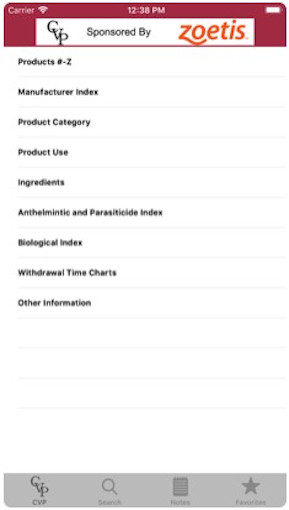
The process of applying for an MA includes the submission of an extensive and detailed dossier, which consists of data that supports the safety, quality and efficacy of the product in accordance with the legal framework. The discovery, research and development of an animal medicine is a lengthy and very expensive process with successful products taking 5-11 years to reach the marketplace (10).
Compendium of veterinary products registration#
Rigorous European and UK standards for the registration process ensures only those medicines that meet defined standard of quality, safety and efficacy are authorised. This takes the form of a Marketing Authorisation (MA). The Authorisation of Veterinary Medicinesīefore an animal medicine can be placed on the UK market it must be approved. The enforcement division of the VMD proactively takes action, which can include prosecution, against any illegal marketing and use of unauthorised products in relation to breaches of the VMR (9).

Only authorised veterinary medicines can legally be used in the UK. This scheme ensures that the UK meets an EU regulatory requirement to analyse samples for residues of veterinary medicines (7).įor all authorised veterinary medicines, there is an ongoing process of safety and efficacy monitoring – called pharmacovigilance – that ensures the continued safe use of effective medicines (8). meat, milk, eggs) is monitored through a statutory residue surveillance scheme (6). When veterinary medicines are administered to farm animals, the safety of food from these animals and their products (e.g. On farm, there is a legal requirement, under the VMR, to record all veterinary medicines obtained and used in food-producing animals (1). all antibiotics are POM-V (prescription only medicines – through a veterinary surgeon).

antibiotics are only available on prescription from a veterinary surgeon i.e. In the UK, animal medicines can be classified based on their authorised supply route, which allows for control over the sale and distribution of medicines e.g. This ensures that animal medicines are safe to use, they are efficacious (effective) and they meet quality criteria. Scientific studies by animal medicine companies and subsequent evaluation, by independent regulatory authorities, ensure that each authorised veterinary medicinal product meets the required standard of safety, efficacy and quality. At the EU level, the European Medicines Agency (EMA) is responsible for the scientific evaluation and monitoring of medicines (4).Īll of the authorised veterinary medicines available in the UK for animals must undergo a strict regulatory approval process, before they gain a Marketing Authorisation (MA) or licence for sale and supply (5). In the UK, the national competent authority and independent regulator is the Veterinary Medicines Directorate (VMD) (3). Additionally, there are a range of EU regulatory controls that also apply to veterinary medicinal products (VMPs) including controls on safety, licensing and monitoring (2). In the UK, the Veterinary Medicines Regulation (VMR) provides for legislative requirements concerning the manufacture, classification, supply, marketing and use of veterinary medicines (1). These comprehensive controls ensure that safe, effective and quality veterinary medicines are available for the health and welfare of our animals, whilst safeguarding people and the environment. The Veterinary Medicines Department performs further monitoring in the area of veterinary medicines, processes notifications of adverse reactions and comments on safety-relevant topics such as illegal imports and delimitation questions.This document provides an overview of the broad range of regulatory controls that are in place governing the authorisation, supply and monitoring of veterinary medicinal products. The Department regularly coordinates regulatory issues and similar concerning the supply of veterinary medicines in roundtable meetings with the Swiss veterinary pharmaceuticals industry, representatives of veterinarians and the Swiss authorities, such as the Federal Food Safety and Veterinary Office (FSVO).Įxchanging views with national and international authorities on veterinary medicine-specific issues is important, so use is made of this dialogue whenever required. It deals with the quality, safety and efficacy of veterinary medicines in the context of new applications, extensions and variations.Īuthorisation documentation for veterinary medicines is assessed by internal and external experts as well as the VMEC.


The Veterinary Medicines Department is responsible for authorisation of veterinary medicines.


 0 kommentar(er)
0 kommentar(er)
